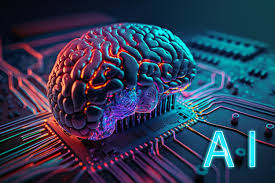AI and Clinical Data Management: What does it all mean?

With all the chatter about AI and its place in clinical research, do we really know what it means? Should we be worried as data management professionals? To answer this, we need to know exactly what AI is/does concerning clinical research/data management to understand how it can impact our professional lives.
Artificial Intelligence (AI) is set to revolutionize clinical data management in several impactful ways. As clinical trials grow more complex with increased data sources—from wearable devices to genetic testing—AI is helping streamline and optimize data processing. One major benefit is in reducing manual tasks. AI tools can clean large datasets by identifying anomalies and duplicates faster than humans, drastically cutting down on labor-intensive processes. For example, tools like Saama’s AI technology were able to clean data from 30,000 patients in days, a process that would typically take months (Medidata Solutions) (Nature).
AI’s ability to automate case report forms and other data-heavy processes improves both speed and accuracy. AI-driven systems can now handle the enormous volume of data points collected during trials, helping organizations manage decentralized trials and remote monitoring more effectively. These advancements allow clinical data managers to focus on higher-level analyses and strategic decisions, transforming their roles into data science-oriented functions (Syneos Health).
Generative AI tech, in particular, is introducing new possibilities, such as enhancing patient engagement and helping craft trial designs tailored to real-world data. These systems can extract insights from past trials or simulate potential outcomes, thereby improving trial designs and patient recruitment (Medidata Solutions). However, data quality and bias in AI models remain challenges that must be addressed to ensure AI can be used safely and ethically in clinical research (Syneos Health) (Nature).
AI-based technologies are playing a significant role in enhancing clinical data management and data science. Some of the key technologies include:
Natural Language Processing (NLP): NLP helps extract insights from unstructured data such as clinical notes, patient records, and trial reports. It enables the automated extraction of relevant information from these documents, improving data accuracy and speeding up processes like eligibility screening (Syneos Health) (Medidata Solutions).
Machine Learning (ML) Algorithms: ML is used to automate data cleaning, anomaly detection, and prediction of outcomes. In clinical trials, ML tools can detect inconsistencies in datasets and flag duplicates or erroneous data points faster than manual review processes. It can also predict patient dropouts and trial milestones, enhancing trial efficiency (Nature).
Generative AI: This branch of AI can simulate potential outcomes by analyzing large datasets, thereby aiding in trial design, patient recruitment, and synthetic control arms creation. Generative AI also personalizes patient interactions, making trial protocols more understandable and enhancing recruitment and retention (Medidata Solutions) (Syneos Health).
Robotic Process Automation (RPA): RPA can automate repetitive tasks such as case report form generation and data entry, streamlining workflows in clinical trials. For instance, AI-based systems are being used to automate the creation of case report forms based on trial protocols (Nature).
Real-time Data Monitoring Tools: AI systems, such as those developed by Saama, combine data from diverse sources (wearables, lab results, etc.) and provide real-time monitoring of clinical trial data. This facilitates immediate decision-making and rapid identification of data issues (Nature).
If AI is enhancing efficiency, speeding up clinical trials, and enabling a more strategic approach to clinical data management, what does this mean for us, the boots on the ground? Should we, as clinical data managers/professionals, worry about job security as AI is infiltrating the clinical data management sphere?
While AI is poised to transform clinical data management, clinical data managers should not be overly concerned about job security in the short term. Instead, AI presents an opportunity to evolve the role. Rather than replacing jobs, AI is expected to shift the responsibilities of data managers from manual data cleaning and entry to more strategic, high-level functions like data interpretation, study design, and decision-making (SyneosHealth) (Nature).
As mentioned, AI tools can automate repetitive tasks, such as detecting data anomalies and synthesizing large datasets, which reduces the hours spent on manual reviews. This allows data managers to focus on more analytical and collaborative roles. Increasingly, we are being seen as data scientists who help design the best methods for capturing and analyzing data, making our contributions more critical to the clinical research process (Syneos Health) (Medidata Solutions).
However, the rise of AI also means data managers will need to adapt by developing skills in AI-based technologies and data science. Continuous education and upskilling in these areas will be key to maintaining relevance and enhancing our role in a more automated environment (Syneos Health). Leaning into flexibility and being open to shifting work methods will only serve to bolster our value and overall functionality.
While AI will change the nature of clinical data management, it is unlikely to replace human professionals. Instead, it will redefine our roles, making them more strategic and integrated into the broader clinical research process.ement, it is unlikely to replace human professionals. Instead, it will redefine our roles, making them more strategic and integrated into the broader clinical research process.


